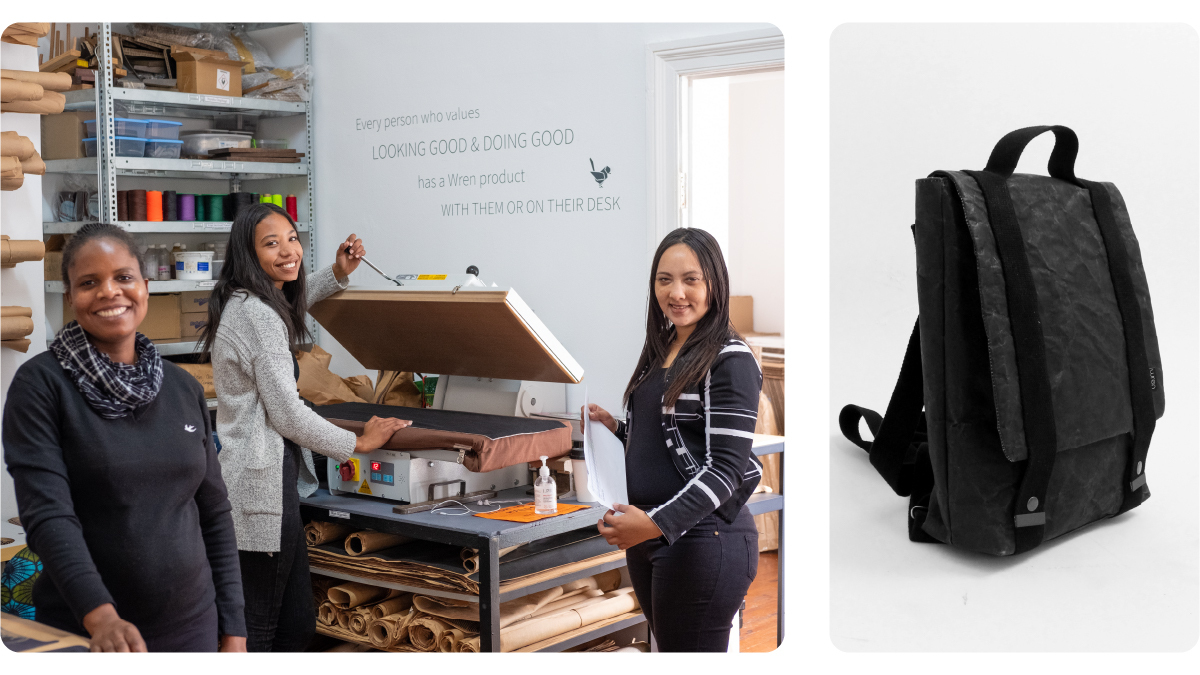Good advice: 6 tips for aspiring small business owners

Megan
8 Mar, 2022
Managing a small business is never easy. Ask any entrepreneur who’s started one.
There’s no magic formula that outlines how to ensure your business is successful. Regardless of how well you’ve planned, you’ll still face unforeseen circumstances.
It’s one of the reasons why you should learn from other small business owners. They’ve learnt firsthand how to navigate those circumstances.
Read more: 10 side hustle ideas you can turn into a small business
We spoke to six entrepreneurs who’ve been there, done that (and started the business) to learn what advice they wish they had before starting their business.
Read through their nuggets of wisdom to better prepare yourself for the mammoth task of managing your own small business.
1. Things don’t have to be perfect when you start
Nkhensani Rikhotso is a firm believer in doing things you are passionate about. The multi-passionate entrepreneur launched her business, HerMerakai, in 2020 after she realised her Instagram following had grown substantially. She decided to use that momentum to offer her services as a plant care specialist, along with her other passions – practising Reiki and doing creative work. Since then, her business has grown beyond what she could have imagined.
“Start from a place of passion,” says Nkhensani. “It’s so much easier when you do that because then you’re not just blowing in the wind and following what you see around you. You know what you’re doing and why you’re doing it. So my advice would be to just start. It doesn’t need to be perfect; just start from a space that’s honest and true to yourself, and you will figure everything out as you go along.”

Read more: HerMerakai: nurturing her passion into a flourishing business
2. Take time to think through your decisions
After working as a barista for many years, Monde Bulala opened his own coffee shop, Molweni Coffee, in the Cape Town CBD. Making the switch from barista to entrepreneur came with its own set of fears Monde had to overcome.
While the entrepreneur learnt how to overcome his self-doubt, the one thing he wished he had learned earlier was not to make hasty decisions.
“You always need to take the time to think through things before saying yes to certain business deals or people you might work with,” says Monde. “You need to take time to understand what kind of deal is being discussed and where it will put you. You don’t want to be bound to relationships or commitments that might not serve you or play out as you thought they would.”
Read more: Molweni Coffee: the perfect blend of caffeine and enthusiasm
3. Document everything
Paul Rubin is no stranger to starting a business. Before opening Nude Foods, he established several other businesses – none of which were as successful as the zero-waste grocery store.
As Nude Foods grew in popularity, Paul was able to employ a growing number of people. One of the main lessons he learned was the importance of creating formal contracts for those in his employ.
“Make sure everything is formally documented,” he says. “Make sure your employees have contracts that they’ve signed and, if you have business partners, draw up a partnership agreement. Make sure everything is clear and that everyone knows their role and what’s expected from them.
In the beginning, I did a lot of those things verbally. I think a lot of entrepreneurs do this when they’re starting out. They’re spread so thin that they’ll employ someone, and it’ll be on a handshake, and you won’t give them a formal contract with a detailed description of the job. Everyone goes with the flow, but while that’s fine in the beginning, it becomes complicated as time goes on. If someone isn’t performing, you don’t have a contract or job description to measure their performance against.”

Read more: Nude Foods: the intimate details of growing a sustainable business
4. Learn to delegate
When Chelsey Wilson-Roos launched Feat. in 2012, she started with one product on offer: socks. After selling her products at summer markets, she soon landed a spot at the Design Indaba. There she met some of her first stockists. Soon after, she established an online store which helped her grow her business.
As her business grew, so did her responsibilities. Despite her growing number of duties, the one thing she grappled with was getting in someone to help her manage her tasks.
“As a performance-driven creative who loves to learn and perfect, I’ve easily fallen prey to the idea that I need to do everything myself,” says Chelsea. “I end up carrying the weight of the entire business on my shoulders, but it’s not sustainable, and it saps the joy out of your business so quickly.
Learning to delegate isn’t easy because it’s learning to entrust aspects of your “business baby” to people who are just as uniquely flawed and capable of error as you are. And often, it feels easier to trust the devil you know, yourself, with your baby than somebody else, but it’s crucial to maintaining peace and balance in your life. Your business isn’t you, it’s one aspect of your life, and while it’s good to prioritise the things that are important to you, your business can’t be everything.”
Read more: Feat.: weaving curiosity into every aspect of their business
5. Build a safety net
Wendren Setzer kickstarted The Wren Design at the Design Indaba in 2008. Her business focused on repurposing packaging paper and turning it into unique products like device covers, travel bags and wallets.
Before the Covid-19 pandemic hit, The Wren Design grew beyond her expectations. Wendren managed to turn her small idea into a multi-million rand business. Caught up in the success of her business, Wendren didn’t plan for a possible worst-case scenario like the global pandemic.
“The business was growing so beautifully, and I was so excited about it,” she says. “Then Covid-19 came and pulled the rug right out from under our business, taking it right down to its foundations.
I wish I’d looked back at those good times and built more of a safety net with a plan. I don’t know what that plan would have been. But I wish someone had told me it’s not always going to be this good – you have to think a little bit pessimistically.”

Read more: The Wren Design: turning paper into something extraordinary
6. Don’t get distracted by the highs and lows
As a chef and restauranteur, Sepial Shim has faced both losses and successes throughout her career. When the chef first opened her business Sepial’s Kitchen, it was a 12-seater restaurant in Salt River. While the restaurant thrived initially, a few setbacks forced her to close the restaurant. Despite this setback, her passion for cooking led to her reopening Sepial’s Kitchen as a stand at the Oranjezicht City Farmers Market. She’s also opened other eateries, Allium and The Ugly Dumpling.
“Running your own business is rewarding, and it’s great,” she says. “As long as you put your heart into it, you will achieve what you set out to do. But there will always be high tides and low tides.
Don’t think about the ups and downs too much – just stay balanced. If there is a super exciting day, don’t let your excitement get the better of you because there will be downsides. By focusing on the bigger picture, you’ll always be able to make the right decisions for your business.”
Read more: Sepial’s Kitchen: delivering joy with every bite
These six pieces of advice are just the tip of the iceberg when it comes to the lessons you’ll learn while running your small business. Turning your small business idea into a successful business won’t happen overnight. You’ll face many unexpected challenges. The trick is to continue learning from your fellow small business owners and adapt your business strategies as needed.
Related articles

10 side hustle ideas you can turn into a small business
Use your skills to help you earn some extra income

16 (mostly) free online tools that’ll help you grow your small business
Use these nifty tools to drive your business forward.

4 easy ways to have authentic interactions with your customers
Authentic interactions are crucial to building a solid rapport with customers.

